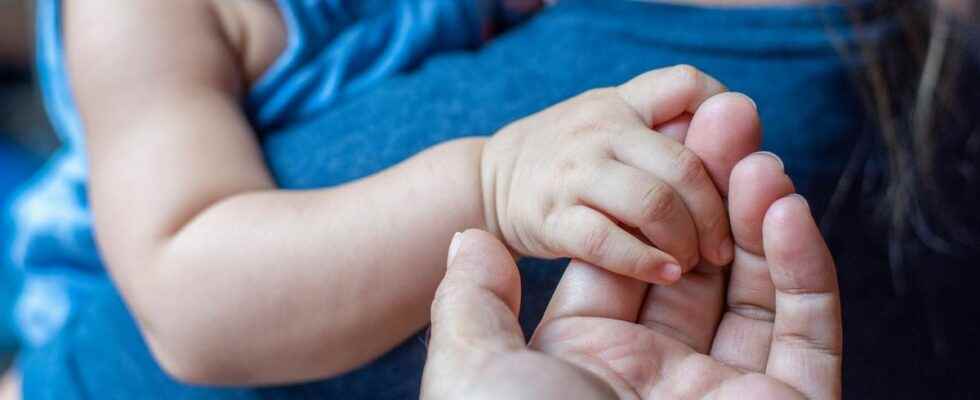Published ,
Reading 1 min.
A bill definitively adopted by the National Assembly on Tuesday February 8 aims to advance adoption in France. Here is what changes.
Facilitate and secure the adoption of the child. These are the objectives of the latest bill definitively adopted by the National Assembly this Tuesday, February 8 with 96 votes against 15 and 4 abstentions indicates AFP.
The changes are numerous, the flagship measure being the plenary adoption made possible for unmarried couples. The goal is to end “to discrimination relating to the rules of union to same-sex parenthood” explains LREM MP Coralie Dubost. PACS and cohabiting couples will be able to adopt. So far, only one member of a couple was able to do this. The LREM deputies considered for their part that marriage was the most protective framework.
Lowered minimum age
Couples will be able to adopt having lived together for a year, compared to two so far. Another new measure: the minimum age will be 26 instead of the current 28. But one or the other condition will be mandatory.
In addition, organizations authorized for adoption, whose activities are mainly geared towards international adoptions, will no longer be able to take in children in France. The objective is for Child Welfare to collect the children so that they can benefit from the status of state ward, which is more protective.
International adoption without accompaniment prohibited
Individual international adoption will be prohibited and must be accompanied by an organization authorized for adoption or the French Adoption Agency (AFA).
Another provision: the possibility for couples of women who have had recourse to PMA abroad and since separated, for the woman who has not given birth to adopt the child and this against the advice of the mother. Note, however, that this measure is transitional because the bioethics law of 2021 opens PMA to female couples in France.
Finally, the biological parents who entrust their child to Childhood Social Assistance must consent to his becoming a pupil of the State and so that he can be adopted.
